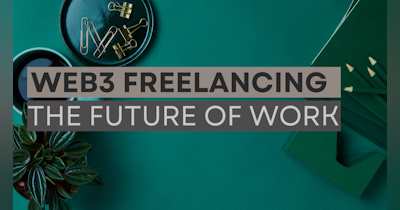Since the pandemic, freelance jobs are taking over the world. According to Upwork, in the last 12 months, two million Americans joined their platform to look for a next gig. More people got a taste of what it takes to work from home. Some love it, some hate it. Some realized they lack discipline while others perfected their habits so they can fully jump into this.
What is a freelancer?
A freelancer is any worker that sells his services to different organizations (this is called Business to Business, also known as B2B), or to different people (this is called Business to Consumer, also known as B2C).
Comparing to a traditional worker, a freelancer does contract work, which means he is self-employed. He can work with multiple organizations or people at the same time.
Freelancers are, how I love to call them, picky workers: they pick the clients they want to work with, they pick the projects they want to work on and they pick their preferred working hours; and they are not bound by working at a specific location.
Freelancers are responsible for all sorts of things that traditional employees are not, such as keeping track of time spent on different projects, billing clients, paying their own employment and business taxes. They are not considered employees by the companies they are working with, but rather contractors.
Why would you freelance?
Jim Rohn said: ‘’you can have more than you’ve got because you can become more than what you are’’.
Let’s say you are in a 9-5 job. Do not ask yourself what you are getting by being there, ask what you are becoming. Do you have a pursuit of career growth? Are you just counting the hours for the clock to hit 5 pm? That’s why you should start contract work because freelancing every single day is different. In freelancing, instead of running after your success, you work for it.
If you think that freelancing is fairly new, know that 54% of people that work for Google are contractors, meaning freelancers. 46% of them are in a permanent job with them.
Where are we headed?
During the pandemic, a lot of companies shifted their growth and talent strategy to countries with a great workforce because the outsourcing cost is lower.
Another important aspect, besides money, is the fact that when companies decide to hire freelancers, they have access to a large pool of candidates. For example, people with disabilities find it hard to commute to a job. And there are brilliant people out there who feel incapacitated due to physical obstacles to travel to the office and back. And finally, we are introducing diversity to another level.
This gives a lot of confidence that someone can navigate the workforce as a normal worker that thrives in a different environment.
At the end of the day, what I love about freelancing is that work is accessible to EVERYONE.
The ball is in your court! When are you planning to start freelancing? Let me know in the comments.
To receive additional resources, you can subscribe to Jump In Podcast newsletter. I publish freelance tips and tricks every Monday



















